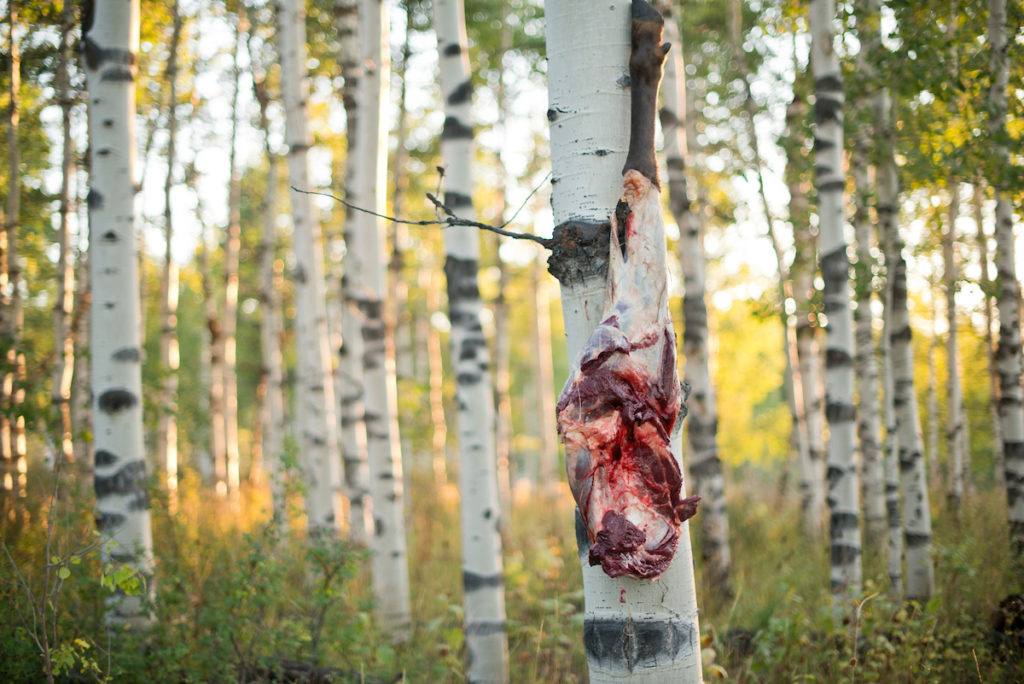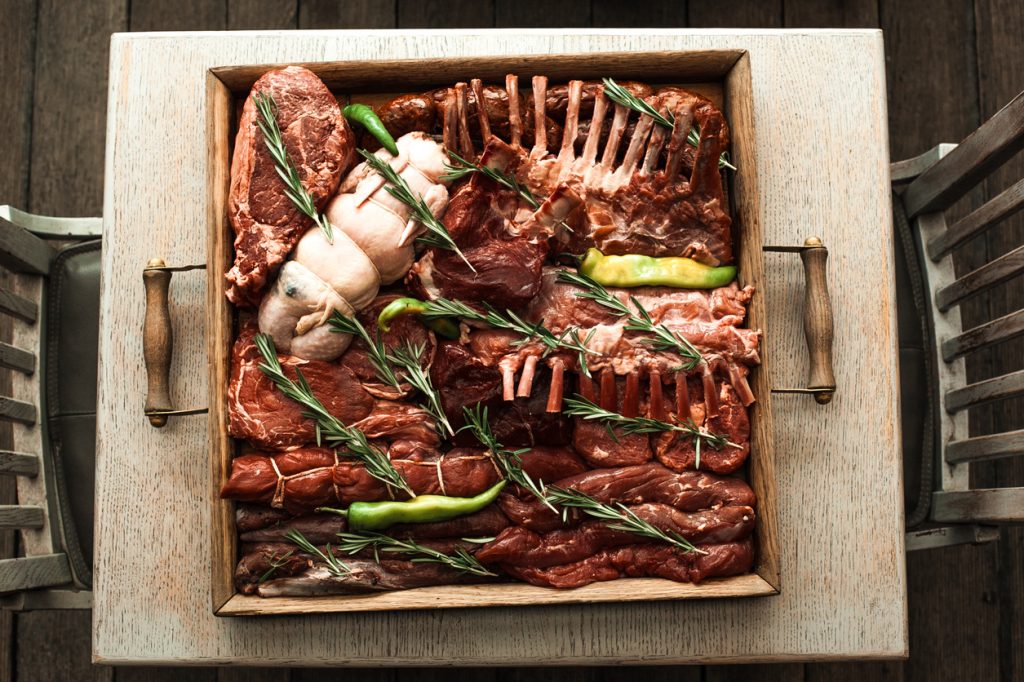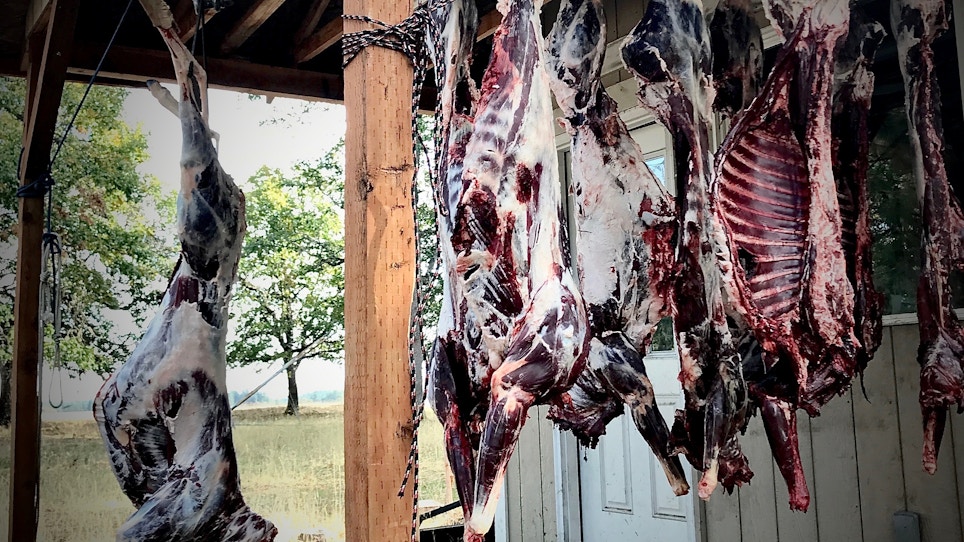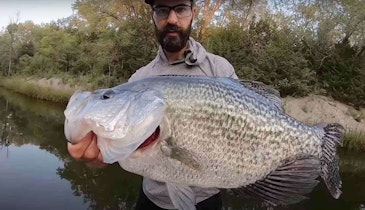This is one of those stories you click to read, not because you need to be convinced to eat wild game, but because the message reminds you that you're awesome for hunting your own meat. Plus, you're exceptionally healthy for eating the wild game you hunt. Boom.
Here are 5 reasons wild game is a great choice.
1) Fat and the Meatloaf Test
There is virtually no fat in wild game. I don't think there is any one factor that drives this home more than the sight of meatloaf made with wild game verses a loaf made with beef. The grease that pools in the bottom of the Pyrex dish when meatloaf is made with beef is the only endorsement I ever need in favor of wild game. It reins supreme.
Low fat content can be attributed to the active lifestyle and natural nutrition of wild animals.
"Fat from wild game contains a higher proportion of polyunsaturated fatty acids," said Dr. Melina Jampolis, Physician Nutrition Specialist and a CNN contributor. "Their nutrition statistics are very similar to a skinless chicken breast, with most cuts having around 110 to 130 calories, 2 grams of fat and 25 grams of protein for a 3 oz. serving. Deer, elk and antelope have a vitamin and mineral composition similar to beef, so these meats are good sources of iron (5 mg/4 oz.), B12 (3.6 mcg/4 oz.), B6, niacin and riboflavin."
2) No Hormones or Antibiotics

The mixture of fats found in wild game including venison and elk meat help lower cholesterol and reduce other chronic disease risk. Photo: John Hafner
This is a big one, often cited by those who follow the Paleo Diet, as one of the real benefits that compel more and more health-conscience Americans to favor wild game.
While research suggests the effects of natural steroid hormones have a negligible human health impact, it seems the negative impact of antimicrobials pose a more significant risk. These injections are used for growth promotion in animals and have an adverse affect on the normal human intestinal flora.
3) Wild Game Meat: Hunted, Not Farmed
Venison and other wild meats continue to surge in popularity, particularly among the foodie-motivated, affluent set. Problem is, wild game isn't really wild if it's farm raised and that's what most are eating. So maybe our Benefit No. 3 isn't so much a benefit of the meat, but a benefit that is unique to the U.S. hunter.
PaleoLeap.com, a site targeting those committed to the Paleo Diet, addressees this paradox of farm-raised, "wild" game:
Of course, the obvious way to get game meat is to hunt it yourself, and if that’s an option for you (or for someone you know who’s willing to share their bounty): great! Realistically speaking, though, not everyone has the skill, time, inclination, and opportunity to go out and shoot their dinner.
In the US, you can get “game meat” in supermarkets – but unfortunately, due to US food laws, meat in a supermarket won’t come from animals that were caught in the wild and shot by a hunter. Instead, you’ll be getting rabbits (or pheasants, or bison, or whatever the animal is) from animals raised on farms in accordance with USDA regulations – the same animals, but it’s not really “game” because the animals were raised on a farm.
So does that meat still have the advantages of real hunted game? Well, it’s still a nice change from the beef-pork-chicken rotation.
4) Inherent Flavor

An animal's degree of exercise boosts blood circulation. Increased circulation boosts flavor. Photo: iStock
Wild game has the edge when it comes to flavor. And before you assume flavor is subjective based on the desires of the palate, you'd be wrong. Exercise boosts blood circulation and this resulting increased blood circulation boosts flavor. So an active, wild animal’s meat is likely tougher than a less active, farm-raised animal’s meat, but it’s also packed with more flavor compounds.
It's also worth noting that overcoming a tough cut of meat, well, that just takes slow cooking. It's an easily accessible solution. Slow-cooking gave us BBQ pork shoulders, so who's not in favor of that?
5) Caveman Fat Is Where It's At
Hunters who eat wild game benefit from essential fats, specifically omega-6 and omega-3, which are critical components of a healthy diet. The mixture of fats found in wild game including venison and elk meat help lower cholesterol and reduce other chronic disease risk.
In a Purdue University study, professor and university facility scholar Bruce Watkins said, "both grass-fed steers and the wild ruminants have a ratio of omega-6 to omega-3 fatty acids slightly above two in meat. In other words, two parts omega-6 to one part omega-3," he said. "That ratio is much lower than the ratios of 5-to-1 to 13-to-1 reported in previous studies for grain-fed steers."
Anthropologist Loren Cordain, who conducted the study alongside Watkins, said, "over the past several decades, numerous studies have found that indigenous populations have low serum cholesterol and triglyceride levels." Cordain is a professor of health and exercise science at Colorado State University and author of The Paleo Diet.
"Previous studies by myself and colleagues had found that nearly all – 97 percent – of the world's hunter-gatherer societies would have exceeded recommended guidelines for fat," she added.
Featured photo: Amy Hatfield






